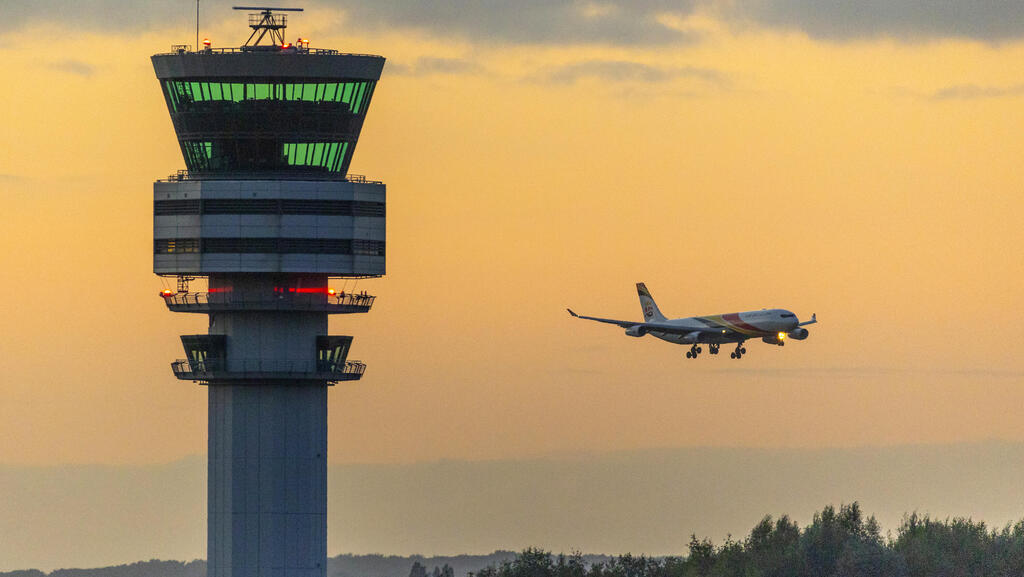
Global aviation faces challenges amid surges in electronic warfare in the Middle East
European and American aviation regulators have warned that deliberate interference with navigation systems leads to flights being diverted to alternative routes and pilots receiving inaccurate reports of their location
The war in Gaza not only disrupts the daily lives of Israelis and Palestinians but also interferes with the routine of civilian aviation beyond flight cancellations in the Middle East airspace. The reason is the widespread use of electronic warfare, in which various military forces deliberately disrupt signals to satellites and navigation systems.
As reported by CTech, disruptions in electronic signals were recorded in the early days of Israel's military operation in the Gaza Strip and the escalating military tensions with Hezbollah on the northern border of Israel. A month ago, the Israeli National Cyber Directorate warned citizens that GPS jamming employed for various security needs can lead to temporary disruptions in location-based applications. However, more and more warnings are now being issued regarding the disruption of flight paths in broader regions.
According to a report in The New York Times, the European Aviation Administration cautioned that as a result, aircraft lose their satellite signals, flights divert to alternative routes, and pilots receive inaccurate reports or warnings about their location. Similarly, the Federal Aviation Administration (FAA) in the United States warned pilots about disruptions in Global Positioning System (GPS) navigation systems in the Middle East region.
The report states that radio frequency disruptions, designed to interfere with signals used by rockets, drones, and other weapons, have spiked since the Russian invasion of Ukraine in early 2022 and surged again since the atrocities of the terrorist organization Hamas against Israeli cities on October 7 and the Israeli army's response in the Gaza Strip since then. These disruptions are dangerous, and so far, aircraft systems have been unable to identify deliberate GPS faults or correct them.
Related articles:
A research team from the University of Texas found widespread disruptions in frequencies in the Middle East, including signals from satellites that positioned aircraft above Ben Gurion Airport when they were actually far from it. The aviation safety organization Opsgroup reported that they received about 50 similar reports, with some cases indicating that the equipment on the aircraft showed them approaching airports in Baghdad, Cairo, or Beirut when they were not in the area at all.
According to Mark Zee, the founder of the organization, these attacks reveal a fundamental flaw in the design of the electronic equipment in aircraft, which relies on the assumption that GPS data can be trusted. "It will take time for manufacturers to adapt the systems to overcome deliberate disruptions," he said.
This electronic warfare could have broad economic and security implications beyond the aviation industry. Capital markets, telecom companies, energy providers, broadcasting networks, and other industries worldwide rely on satellite signals for various purposes. Research from Britain found that disruptions in satellites over five days could cost a country $6.3 billion.
The disruptions in location tracking systems affect not only aviation matters but also the daily lives of citizens. Israeli mobile phone users have experienced significant disruptions in their location applications due to intentional GPS jamming by the Israeli security system. These disruptions have notably affected navigation applications like Waze and even the Home Front Command's missile warning system.
For instance, an Israeli resident in Haifa, in the country's north, was perplexed to find that his GPS indicated his phone was in Lebanon. Such disruptions could prove critical, as they could prevent users from receiving vital alerts, such as missile launch warnings from the Home Front Command. Mobile phone users in Israel are advised to stay vigilant during these disruptions and consider alternative means of communication and navigation during security-sensitive periods.
